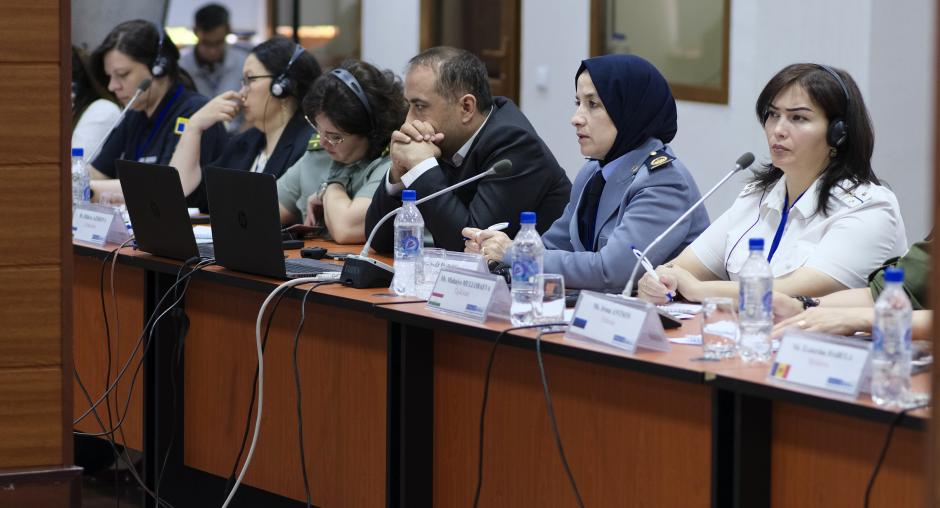Roundtable discussion on Best Practices in Gender Mainstreaming in Border Security and Management and Governmental Section at the OSCE Border Management Staff College

On 24 June 2022, the OSCE’s Border Management Staff College (BMSC) held a roundtable discussion to address the “Best Practices in Gender Mainstreaming in Border Security and Management and Governmental Section. The panelists exchanged ideas and explored best practices taken by the OSCE States to promote a gender approach, in support of equal treatment of women, men and persons with non-binary gender identities as the foundation of the fundamental human rights.
The roundtable event was held in a blended format, and brought together more than forty-five participants, representing government agencies, civil society, diplomatic missions, international organizations, experts, and mid-to-senior level officers of the 32nd Staff Course representing the countries of Algeria, Estonia, Georgia, Kazakhstan, Moldova, Portugal, Romania, Tajikistan, Thailand, Tunisia, Turkiye and Uzbekistan.
In his opening remarks, Ambassador Vuk Zugic, Head of the OSCE Programme Office in Dushanbe (POiD), reiterated the objectives of the OSCE, which are to promote the constructive participation of women in all spheres of public life, including border security and governmental sector, to reflect different perspectives and protect the human rights of both men and women. In doing so, the OSCE strives to end all forms of discrimination, gender-based violence, and any harmful practices against women and men in the public spheres and security sector, thereby increasing their effectiveness.
Ms. Tea Jaliashvili, the Deputy of Head of the POiD, echoed the Ambassador’s comments adding that despite ongoing efforts, the participation of women in the peace-making process, as well as the representation of women in national parliaments, remains relatively low. Ms. Jaliashvili recommended further dialogues that highlight the obstacles to and prospects for gender mainstreaming, and to consider the internalization of gender as an integral part of the fight against human trafficking.
Ihar Kuzminich, the Chief of Training and Education, highlighted that the BMSC regularly organizes roundtable discussions on the most pressing topics and that this event was the second in a series of three roundtable discussions. He further noted that the College has offered eight staff courses exclusively for women-leaders since its inception in 2009, and it is looking forward to increasing this number and further contributing OSCE’s gender mainstreaming efforts.
Ms. Angela Mackay, who is a consultant from Canada and author of the gender and security sector reform toolkit titled “Border Management and Gender,” served as the roundtable’s keynote speaker. She spoke about fostering narrative efforts to promote gender mainstreaming in border management, security and governance, as well as tackling the obstacles, barriers, and limitations. Ms. Mackay also visited the subject of potential prospects for improvement. She explained that it is important to mainstream gender in border management for many reasons, but most importantly, to increase opportunities for collaboration with both women and men in border communities.
Other contributors to the discussions included Ms. Inesa Nicolaescu, the Associate Border Security Officer at the OSCE Border Security and Management Unit of the OSCE Transnational Threats Department, who gave an insight on the importantance of engaging men to support gender equality in border security and management. Also, Mr. Robert Heuer, Head of Human Dimension Department at the PoiD, who spoke about integrating gender perspective in the fight against trafficking in human beings.
The conducted roundtable was the second in a series of three roundtable discussions, covering various aspects of international cooperation in the context of border security and management.
